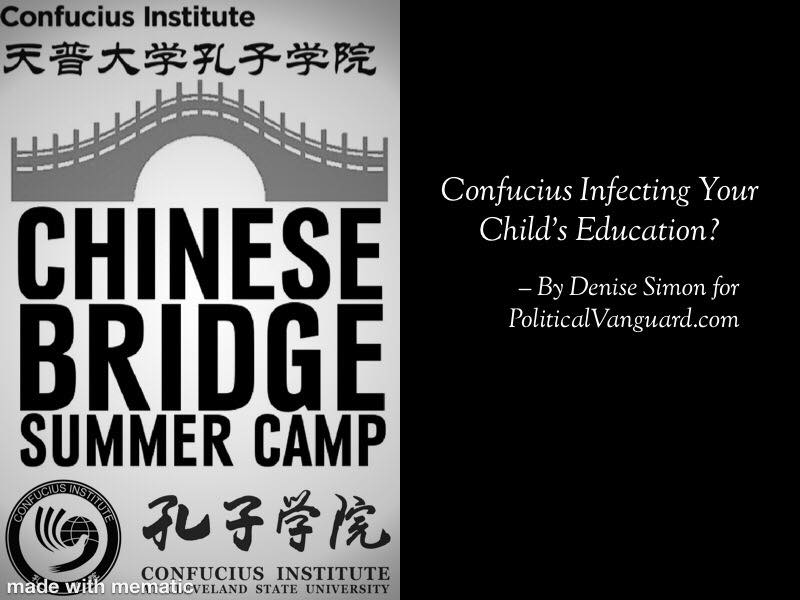Confucius Infecting Your Child’s Education? – By Denise Simon
Much has been written and testimony given about how China steals state secrets.
It steals by all means available in what is termed, industrial espionage. The Justice Department has prosecuted numerous Chinese spies and other operatives in the agriculture, banking, military and telecommunications industries. Several government agencies, including the Justice Department and the Pentagon, have declared that ZTE and Huawei products are forbidden.
Now we learn that it is limited to just the traditional business world.
Both Senators Rubio and Cruz have sounded the alarm bells of yet another Chinese infection that is happening on college campuses, the Confucius Institute. That Institute is part of yet other spying and influence operations as noted by the FBI, going back at least a year. Incredibly, there are some professors being paid stipends by the Chinese government.
The two senators have written letters to universities in their respective states asking them to terminate the Institute. Some have while others are taking it under consideration.
In simple terms, this is China exercising soft power on soft targets in our homeland using academia to inject influence and propaganda objectives.
Yet, while universities are getting attention and rightly so, the other component that is ignored so far are the classrooms of K-12. These are known as Confucius Classrooms. Get our children while they are young, right?
Since at least 2009, there are an estimated 100 classrooms across 28 states that are part of the Confucius Classroom program. At this level, the program is collecting data on all the mainstays of public education including the students themselves.
Has your child expressed an interest at home in Chinese culture, language or even attending some summer camp? Beware. Have you determined if your child’s school has a sister school in China?
Take a look at Minnesota for instance. We read from the University of Minnesota website:
“Confucius Classrooms
The Confucius Institute at the University of Minnesota is proud to have fourteen affiliated Confucius Classrooms, featuring top-ranked public and independent schools in the state of Minnesota, innovative early total Mandarin immersion programs, and a language village that offers rich extra-curricular activities for language learners. As a backbone of the K-12 Chinese language program of Minnesota, the Confucius Classrooms organize and participate in a variety of programming including summer camps in China, Chinese language proficiency testing, and celebrations of various Chinese festivals. Students of Confucius Classrooms have won awards like the Confucius Institute Cup International Composition Competition and have demonstrated their understanding of Chinese language and culture through continued excellence.
The Confucius Institute provides Confucius Classrooms a range of valuable resources that help to sustain and enhance programs, in addition to the application and allocation of annual Confucius Classroom operation funding. Support includes:
- identify and establish a sister school relationship in China
- invitation of visiting and sponsored teachers from Hanban
- organization of educators’ delegations to China
- abundant language and cultural supplies through the Hanban Book and Cultural Materials Donation Program and Confucius Institute Resource Center”
It is important to note that the so-called “research” is being gathered at many universities across the country. Information is being collected on your students and is being exploited by a foreign government, all while the FBI is monitoring and investigating the Confucius Institute from their 56 field offices.
Another chilling notion is the fact that an estimated 350,000 Chinese students are enrolled at American universities. The FBI Director, Christopher Wrayhas warned that some high number of those students are in fact ‘non-traditional’ collectors or intelligence and technology in academia and in all business sectors that are integrated with each other.
As a parent or as an adult student, it is prudent to ask some harder questions and investigate on your own to understand the implications and consequences.







